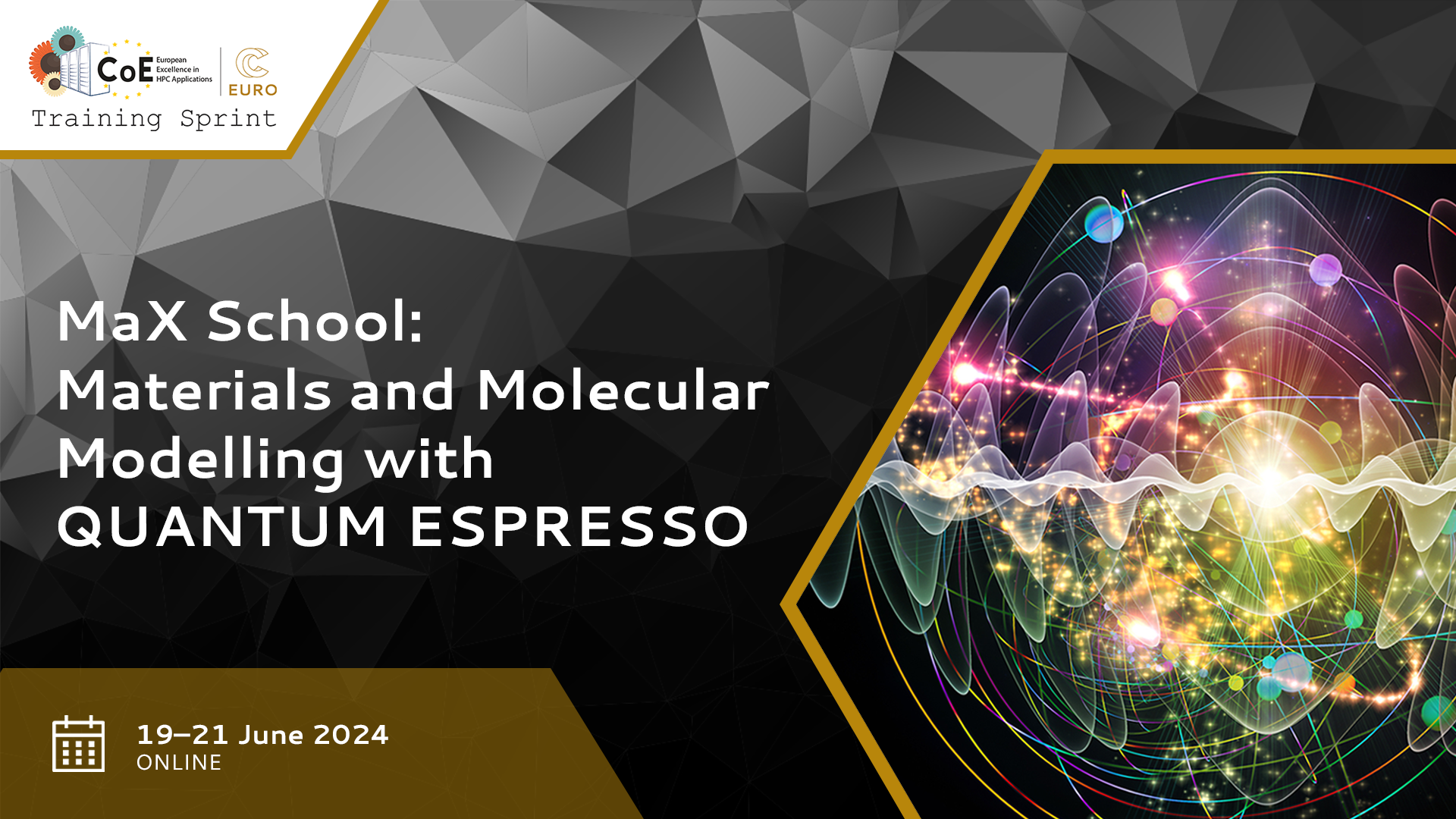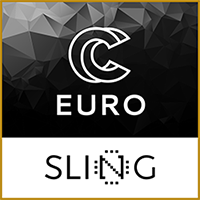 The course is organised by the MaX CoE, NCC Austria, NCC Czechia, NCC Hungary, NCC Poland, NCC Slovakia and NCC Slovenia
The course is organised by the MaX CoE, NCC Austria, NCC Czechia, NCC Hungary, NCC Poland, NCC Slovakia and NCC Slovenia

.png)
Description: The course encompasses a comprehensive curriculum designed to cover the primary features of the QUANTUM ESPRESSO code. The emphasis is on practical skill development. The course strikes a balance between theory and application, offering a hands-on learning experience. It caters to a beginner to intermediate level, aiming to equip participants with the fundamental knowledge and skills necessary for the effective utilization of QUANTUM ESPRESSO in their research and academic pursuits.
Difficulty level: Beginner
Language: English
Prerequisite knowledge: Background in condensed matter physics or chemistry, basics of the LINUX shell
Skills to be gained:
The school is designed for participants with a background in condensed matter physics or chemistry interested in learning to use QUANTUM ESPRESSO. The school plans to cover the main features of the code and provide basic user skills such as compilation, simple scripting, choice of parallel options, and similar.
Location: Online (ZOOM) - Only registered participants will receive the Zoom link.
Lecturers:
Stefano de Gironcoli is a Professor of Computational Condensed Matter Physics at the International School for Advanced Studies (SISSA) in Trieste. Stefano obtained his Ph.D. at the Ecole Polytechnique Federale de Lausanne in 1992 with a thesis on “computational studies of substitutional alloys”, showcasing some of the early applications of Density Functional Perturbation Theory. He joined the SISSA faculty in 1994 as a Junior Research staff. A long-time developer and contributor to the Quantum ESPRESSO codes, he has been involved in many Summer Schools and tutorials about using the Quantum ESPRESSO suite.
Pietro Delugas: is a Research Software Engineer at SISSA. Since 2015, he has been working on the development of QUANTUM ESPRESSO, collaborating with the MaX CoE and the QE Foundation. He works on the GPU porting, efficiency enhancement, and maintenance of the QE suite; he is also working on interoperability features of the suite, refactoring and updating the I/O, and developing postQE and qeschema Python packages. Pietro obtained his Ph.D. in physics at the University of Cagliari in 2006. He worked for Philips/NXP at the IMEC centre in Leuven, for the CNR at the IMM in Catania, and for the IOM in Cagliari before moving to SISSA in Trieste in 2015.
Oscar Baseggio: is a Research Software Engineer at SISSA. He has been working as a QE developer since 2018. In particular, he has focused on the maintenance and development of linear response codes and on the GPU porting. Oscar obtained his PhD in 2016 at the University of Trieste. He worked as an ADF developer for the SCM group in Amsterdam until 2017.
Anton Kokalj is a senior researcher at Jožef Stefan Institute (Ljubljana, Slovenia). He is active in computational chemistry and materials science and has expertise in modelling the physicochemical processes at surfaces relevant to corrosion and heterogeneous catalysis. He also explored other chemical systems, such as Li-battery materials, inorganic molecular crystals, organometallic complexes, and hydrogen-bonded systems. In the context of QUANTUM ESPRESSO, he has developed scripting and graphical interfaces, i.e., PWTK – PWscf ToolKit, PWgui – PWscf Graphical User Interface, and QE-modes.
Matic Poberžnik: is a postdoctoral researcher, working at the Jožef Stefan Institute, in Ljubljana, Slovenia. He is an expert in computational modelling with the Quantum ESPRESSO suite for electronic structure calculations and obtained his PhD in the computational studies of the oxidation of aluminium surfaces and their interactions with potential corrosion inhibitors. He is also a developer of the plugin ARTn, a new implementation of the Activation Relaxation Technique, which is an algorithm for identifying saddle points on potential energy surfaces.
Laura Bellentani is an HPC Scientific Application Engineer working at the CINECA Supercomputing Center. She is committed to the GPU offload and optimization of materials-science codes in European projects, and she is highly motivated to work in the field of performance monitoring and profiling. Before joining the High-Level Support Team at CINECA, Laura obtained her PhD in Physics in 2019 at the University of Modena and Reggio Emilia and worked as a postdoc at CNR-NANO for IQubits.



 Twitter
Twitter

